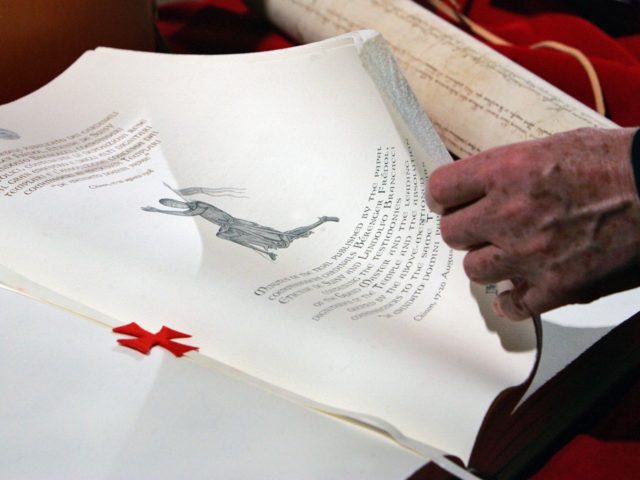ROME — Pope Francis announced Monday that the Vatican’s secret archives will now be known as “apostolic archives,” in an effort to promote an image of greater transparency.
By means of a letter called a motu proprio, the pope formally changed the name of the archives, since in modern usage “secret” has come to take on a more negative meaning than was originally intended.
As just one example, in the Dan Brown fiction novel Angels and Demons, Harvard “symbologist” Robert Langdon visits the Vatican Secret Archives to unearth secrets about the “Illuminati.” The success of the 2009 film adaptation of the book led the Vatican to open the Archives to a group of journalists in 2010 in order to refute the depiction of the archives given in Brown’s novel.
The Latin term Secretum, Francis writes, which had become the institution’s proper name, was justified because it indicated that the archive “was none other than the Pope’s private, separate, reserved archive.”
“This is how all the Popes always intended to define it, and this is how scholars still define it today, without any difficulty,” he writes. “This definition, moreover, was widespread, with similar meaning, in the courts of kings and princes, whose archives were defined indeed as secret.”
“With the progressive semantic changes that have however occurred in modern languages and in the cultures and social sensibilities of different nations, to a greater or lesser extent, the term Secretum in relation to the Vatican Archive began to be misunderstood, to be coloured with ambiguous, even negative nuances,” he contends.
“Having lost the true meaning of the term secretum and instinctively associating its value with the concept expressed by the modern word ‘secret,’ in some areas and environments, even those of a certain cultural importance, this term has taken on the prejudicial meaning of secret, as in not to be revealed and reserved for a few,” he says, which is “entirely the opposite of what the Vatican Secret Archive has always been and intends to be.”
In this respect, Francis notes that the famous German philosopher and mathematician Gottfried Wilhelm von Leibniz, who drew on material from the Vatican archive, wrote in 1702 that it could be considered in a certain way “the Central Archive of Europe.”
Located inside the Vatican walls, the archives contain over 50 miles of shelves with more than one million printed books, a plethora of historical documents and some 75,000 codices from different historical periods.
Among their treasures, the archives contain letters concerning King Henry VIII’s request to divorce Catherine of Aragon and marry Anne Boleyn, which led to the church of England breaking away from Rome in 1534.
They also hold the letter chronicling Martin Luther’s excommunication as well as original acts of the 1633 trial of the astronomer Galileo by the Roman Inquisition.

COMMENTS
Please let us know if you're having issues with commenting.